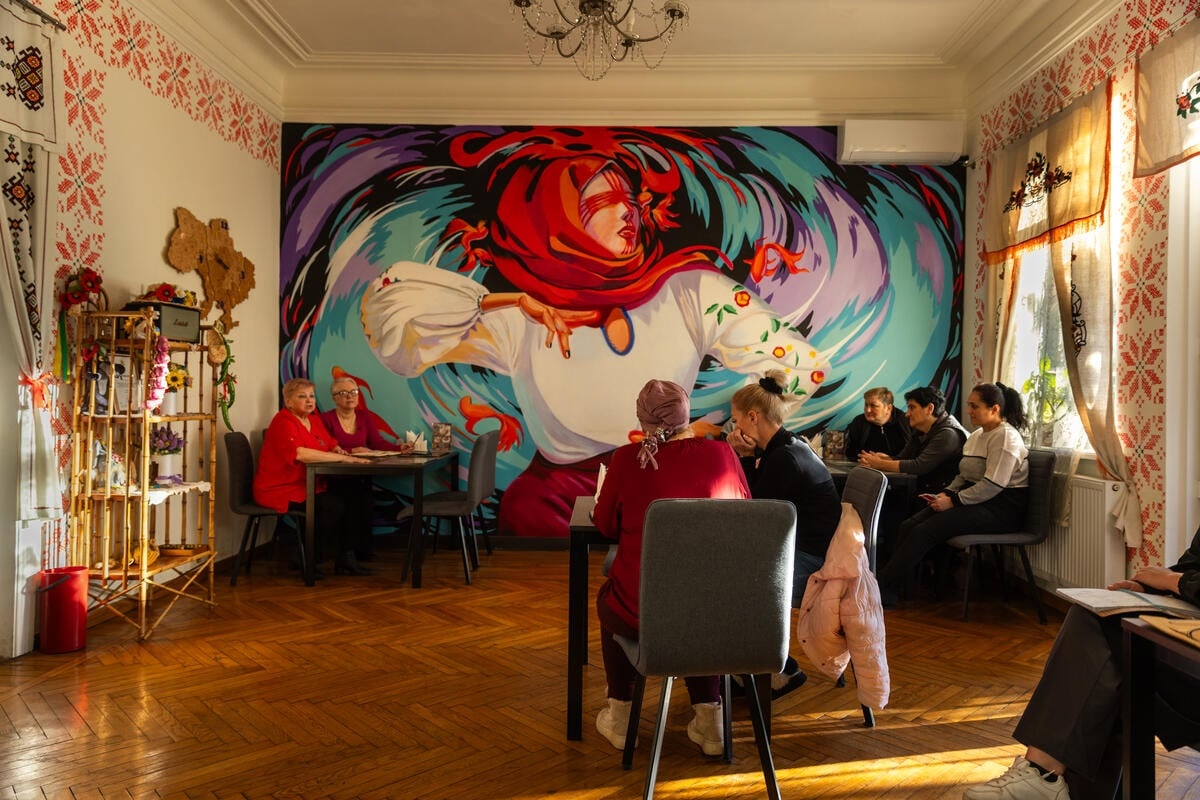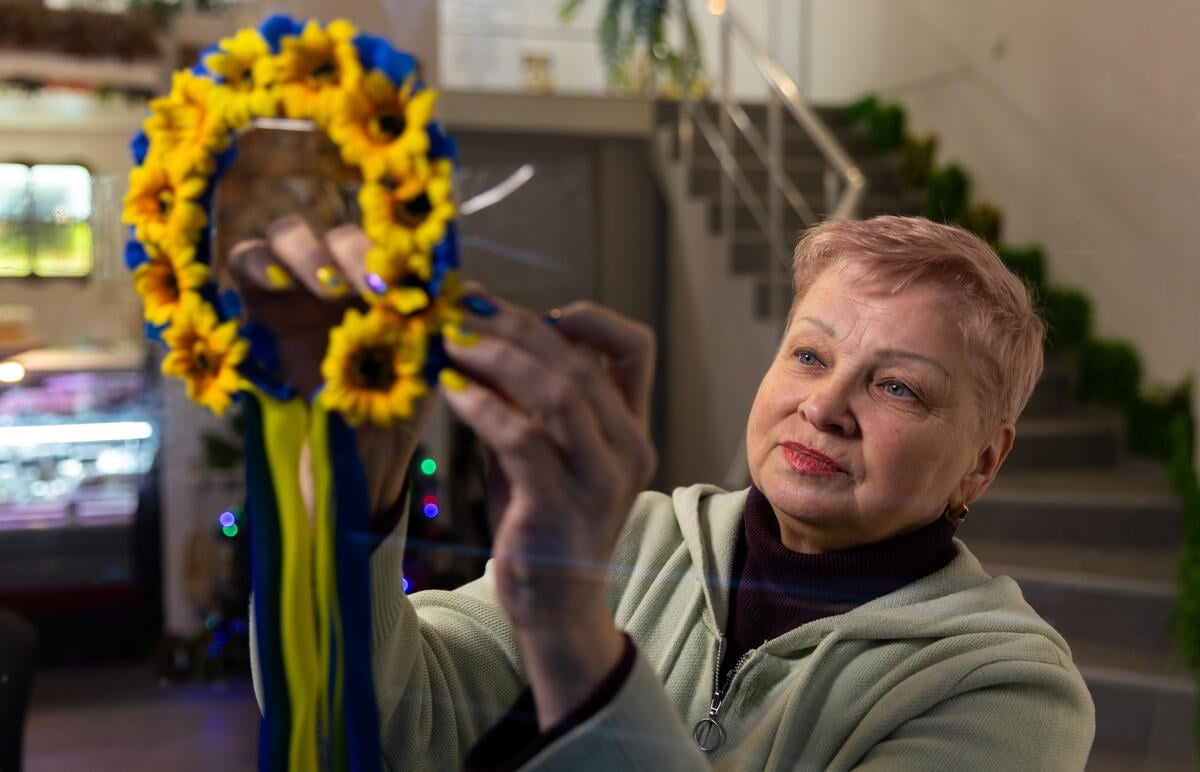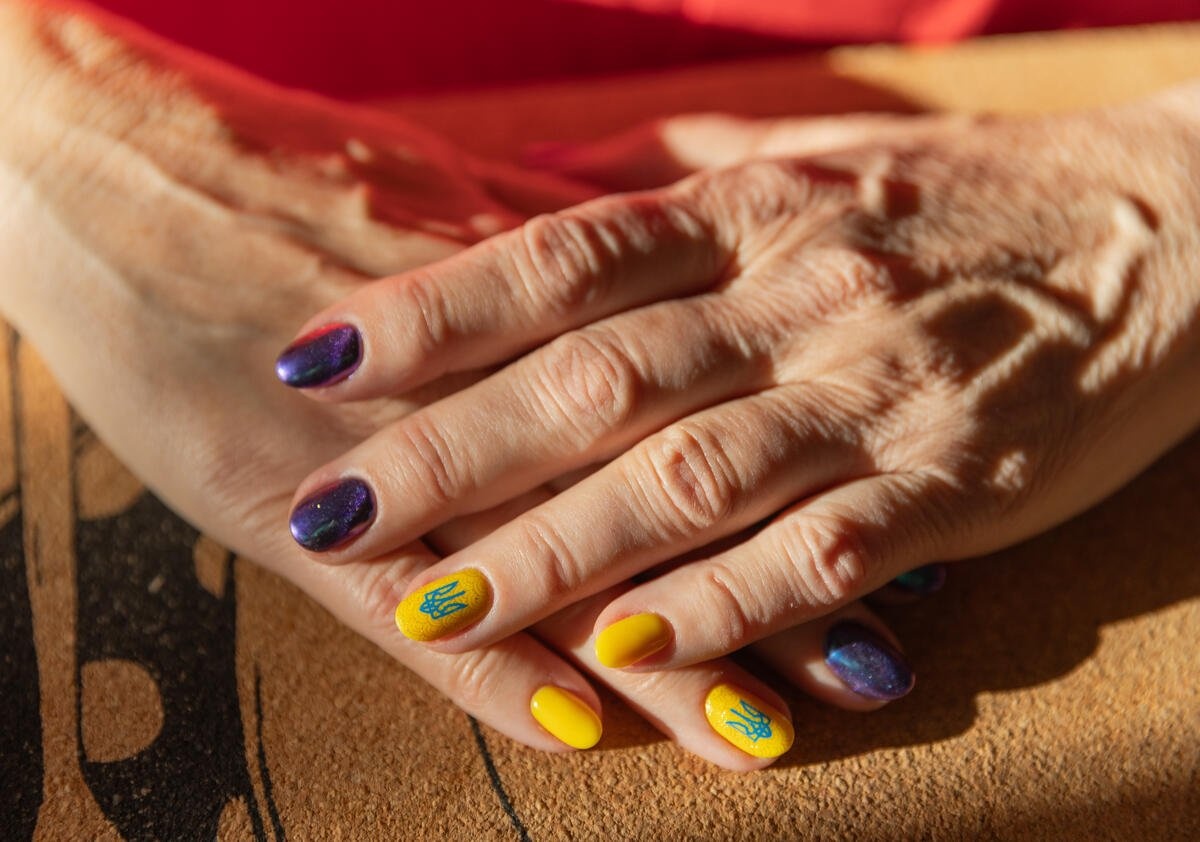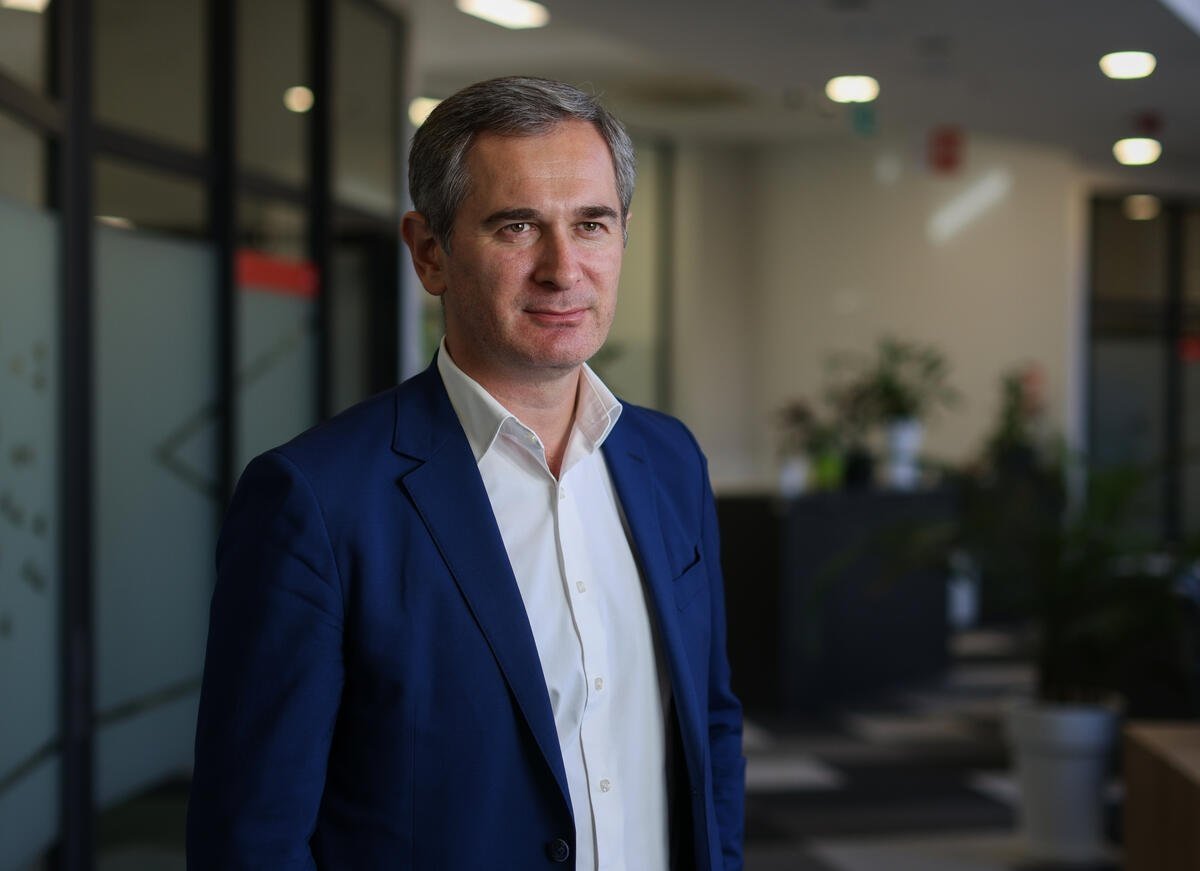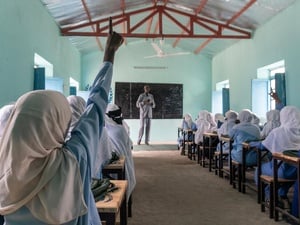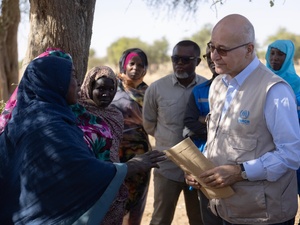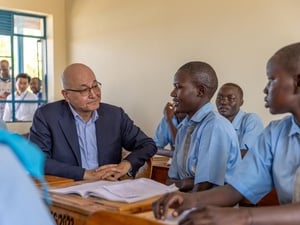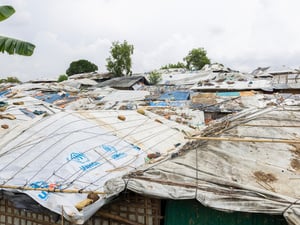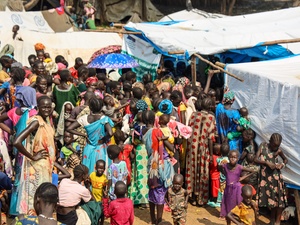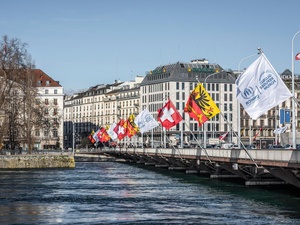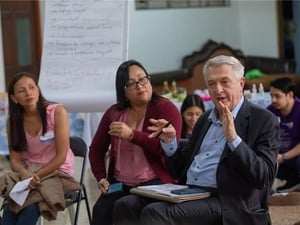Microcredit helps Ukrainian refugees start businesses in Georgia
Microcredit helps Ukrainian refugees start businesses in Georgia
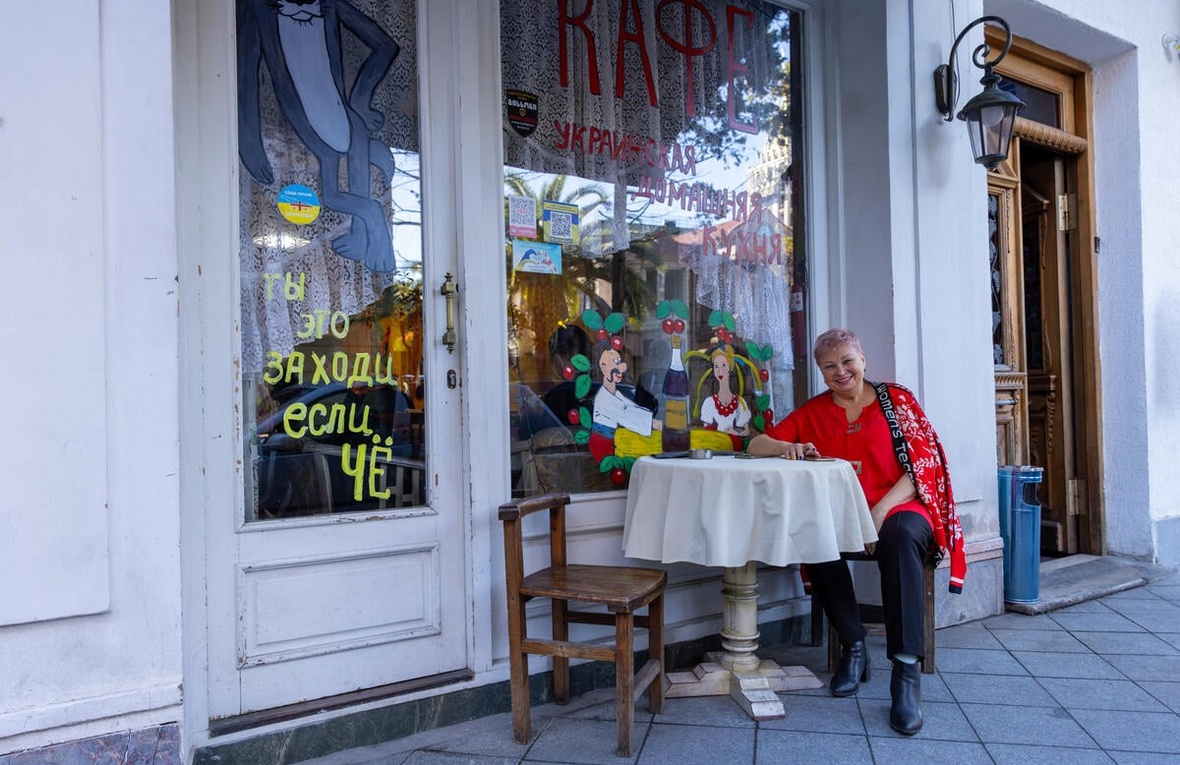
Ukrainian refugee Irina Dotsenko opened her second "Like at Home" café in Batumi, Georgia, with the support of a microfinance loan.
Owner Irina Dotsenko, a 67-year-old Ukrainian from Kharkiv, describes it as the "Ukrainian soul in Georgia". The name is based on the heart-felt compliments of Ukrainian customers reminded of dishes they used to enjoy back home such as Borsch, Holubsti and Deruny. Irina believes it to be fitting, as she brought with her the cherished recipes she, her mother and her grandmother used to prepare in Ukraine before Russia’s full-scale invasion of the country in 2022.
Unable to cook for her family, who remain in Ukraine, she channels her care into cooking for other refugees from Ukraine, as well as for the local community.
“The pain of Ukraine is my pain,” she says. “But it’s a nighttime pain. During the day, my mind is occupied with the people – their worries, and the hustle for work.”
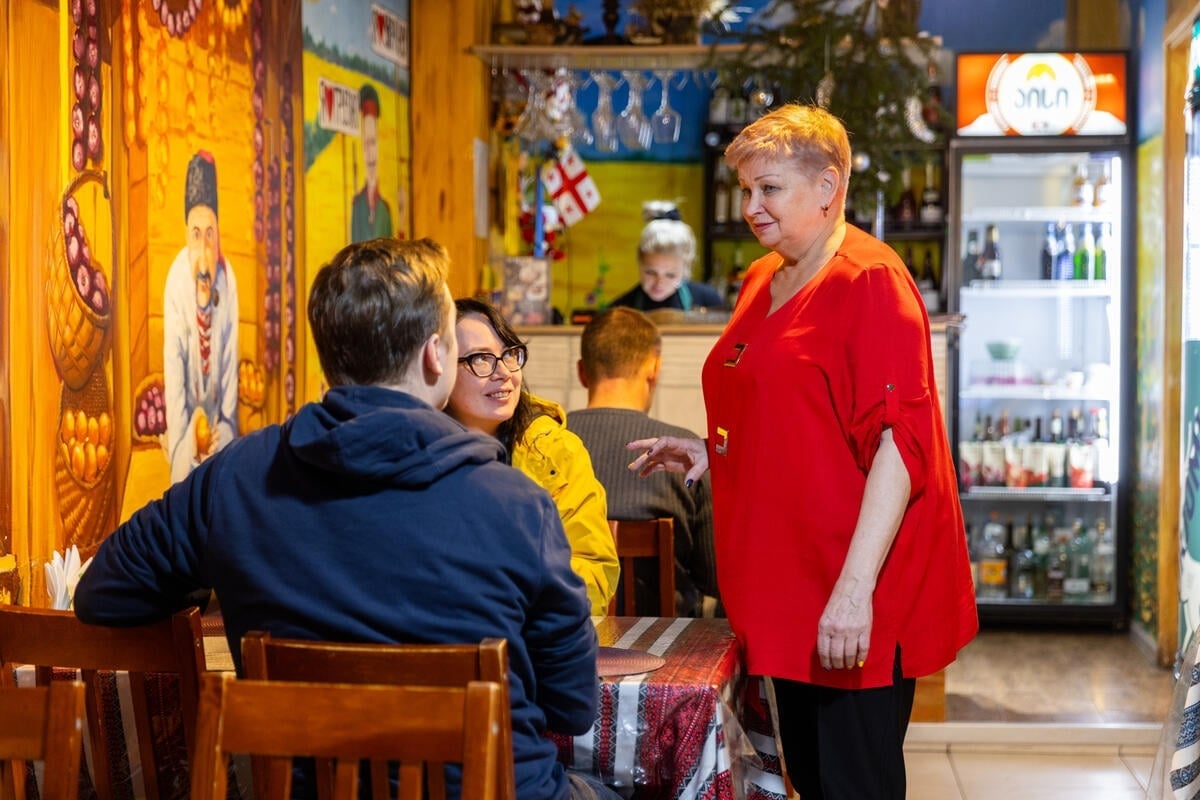
Irina talks to a customer at her café, which has become a favourite in Batumi with Ukrainians hankering for a taste of home, and with locals.
Amidst the chaos of full-scale war and the unprecedented numbers of Ukrainian refugees arriving to Georgia, Irina initially organized food banks to support those in need. But soon she recognized the employment challenges faced by many Ukrainians, and she began hiring some of them. Now, 30 out of 44 of her employees are Ukrainian refugees, while the rest are made up of a wide range of nationalities, including Georgians.
A financial product designed for refugees
But her small café with its 12 tables needed only half that number of staff and she was soon faced with a dilemma.
“I take responsibility for each person working with me – no exceptions,” she says. “The simplest solution would be let people go, but that’s not a viable solution.”
Instead, she decided to open a second café. With limited financial resources of her own, she stumbled across an advertisement for Crystal, a microfinance institution in Georgia that had recently launched a programme specially designed to assist refugees from Ukraine.
Irina promptly applied for a micro-credit loan, which she received within three days following a meeting with Crystal. The additional finance transformed her aspirations into reality, enabling her to purchase the necessary kitchen appliances and equipment to open the second café in December 2023.
Of some 245,000 refugees from Ukraine who have crossed the border into Georgia since February 2022, about 26,600 Ukrainians remain in Georgia today, many of them from heavily war-affected areas in the east of Ukraine. They can access healthcare and education, as well as cash assistance for the most vulnerable, but finding work and affordable housing can be challenging.
Since launching in 2022, Crystal’s programme for Ukrainians, which includes business mentoring services in addition to micro-finance, has helped over 30 Ukrainian entrepreneurs like Irina to support themselves and other refugees.
Tackling stereotypes
The founder and chairman of Crystal, Archil Bakuradze believes that providing job opportunities and business development is the most effective way to support refugees. An internally displaced person from Abkhazia, the breakaway region of Georgia, he understands the importance of solidarity and support in rebuilding lives. His company was established 25 years ago by a group of young people displaced from Abkhazia. It is now the largest microfinance institution in Georgia.
"It is very important to tackle the stereotype that refugees may be a problem or be risky customers. We know ourselves that most refugees are talented, economically active people, and displacement helps mobilize them even more than usual,” he says. “Globally, the idea of supporting the financial inclusion of refugees is a sensible policy, and we would encourage any other financial institution to think about having such programmes for refugees."
Following discussions with UNHCR, the UN Refugee Agency, his company will soon be extending its financial programmes to refugees of different nationalities living in Georgia, enabling them to start and expand their businesses.
“This type of financial assistance is crucial for individuals, and it contributes significantly to the country's economy,” says Irina, as she opens the doors to her second "Like at Home" café in Batumi.
“We've also become useful to Georgia.”
"I take responsibility for each person working with me – no exceptions."



